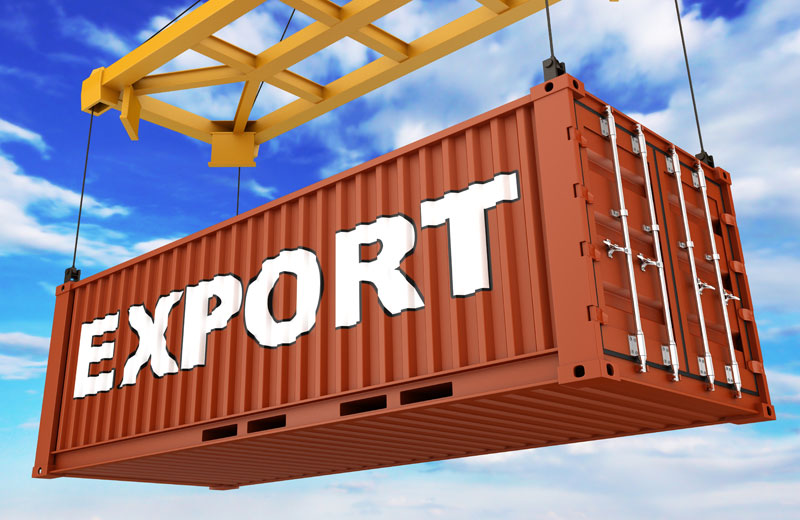August 12, 2020: Industry body CII asked the government to come out with new foreign trade policy at the earliest in view of the COVID-19 outbreak to increase India’s shares in the global merechandise exports to 5% by 2025.
Industry body CII asked the government to come out with new foreign trade policy at the earliest in view of the COVID-19 outbreak to increase India’s shares in the global merechandise exports to 5% by 2025.
The Confederation of Indian Industry (CII) has also outlined a 10-point agenda for increasing India’s exports of goods and services in line with the prime minister’s vision of an “Aatmanirbhar Bharat”.
For developing international competitiveness, key suggestions by CII include re-examining FTAs and tariff structure with an aggressive market-seeking approach, and build India brand and undertake market promotion in key markets.
The CII report, titled ‘Re-orienting India’s Export Endeavour in the COVID-19 World’, states India must aim to achieve 5% share in world merchandise exports and 7% in services exports by 2025.
India’s share in global merchandise exports is 1.67%, with a low share in top globally traded items. In services, it enjoys 3.54% share.
The onset of the COVID-19 outbreak that led to a global trade slowdown, affected Indian exports substantially, and led to a drop in Indian exports by 35% in March, 60% in April, and 36.5% in May 2020.
Outlining 10 areas where action is required to boost exports, the chamber said an open and facilitative import environment is required to attract global companies and ensure competitive access to intermediate goods.
In general, higher duties on finished goods and lower duties on intermediates should be applied.
CII Director General Chandrajit Banerjee said the pandemic situation has impacted world trade negatively.
However, it also provides a big opportunity for India to better engage with the world and boost its export performance. This is an opportune time for India to strengthen its domestic manufacturing through a strong partnership between the government and industry, he said.
“As more and more countries are looking at realigning their trading strategies and diversifying their import sources post the COVID-19 outbreak, India must leverage the present situation to emerge as an alternative destination for sourcing cost-effective, quality products”, stated Banerjee.
A key point in India’s export strategy must be to strengthen its participation in global value chains (GVC), he added.
The CII report has also recommended setting up of an export task force headed by commerce and industries minister to address all areas of export promotion with coordination of ministries, state governments, other organizations and industry bodies.
Further, CII calls for a robust and overarching foreign trade policy to be instituted when the current one expires in 2021. It should not be limited to incentives for exporters but extend across different areas for a holistic export strategy, the report said.
“The first order of the day is to bring out the new foreign trade policy to establish a stable and predictable regime for promoting exports,” CII said.
The report further said India should initiate its own GVCs in a manner that it not only increases its share in world trade but also increases its trade competitiveness.
“Make in India” and FTAs could be leveraged to attract more FDI and use them to connect Indian SMEs to large firms.
It noted that India’s free trade agreements with countries and regions are not panning out as expected even while a large part of international trade is taking place through such agreements.
In 2018-19, export through the preferential route including GSP, was less than 10% of its total exports. No new FTAs have been signed since 2012.
The CII report includes specific measures for nine manufacturing sectors such as automotives, chemicals, electronics, steel and textiles etc. Education and healthcare are covered under services.
In the agriculture and allied sector, CII has brought out recommendations for agri produce, fruits and vegetables, marine products and processed foods.
For growth in automotives, auto components, and electric mobility, CII suggested free trade agreements (FTAs)/Preferential Trade Agreements (PTAs) with focus countries – Bangladesh, Sri Lanka, Nepal, Algeria, Libya, Nigeria, Kenya, South Africa, Egypt, Chile, Peru, Colombia, Indonesia, the Philippines, Israel, the UAE, Saudi Arabia, Australia, the UK, Mexico, and Brazil.
For the steel sector, it said India should demand an auto trigger mechanism to stop a surge in imports while negotiating an FTA, and also opt for stricter Rules of Origin.
The CII said for textiles and apparel sector, FTA/ PTAs with the EU, the US and the UK should be done on top priority.
The government had earlier this year extended the existing Foreign Trade Policy 2015-20, including fiscal incentives for goods’ exports, for one year till March 2021.
Source: live mint








